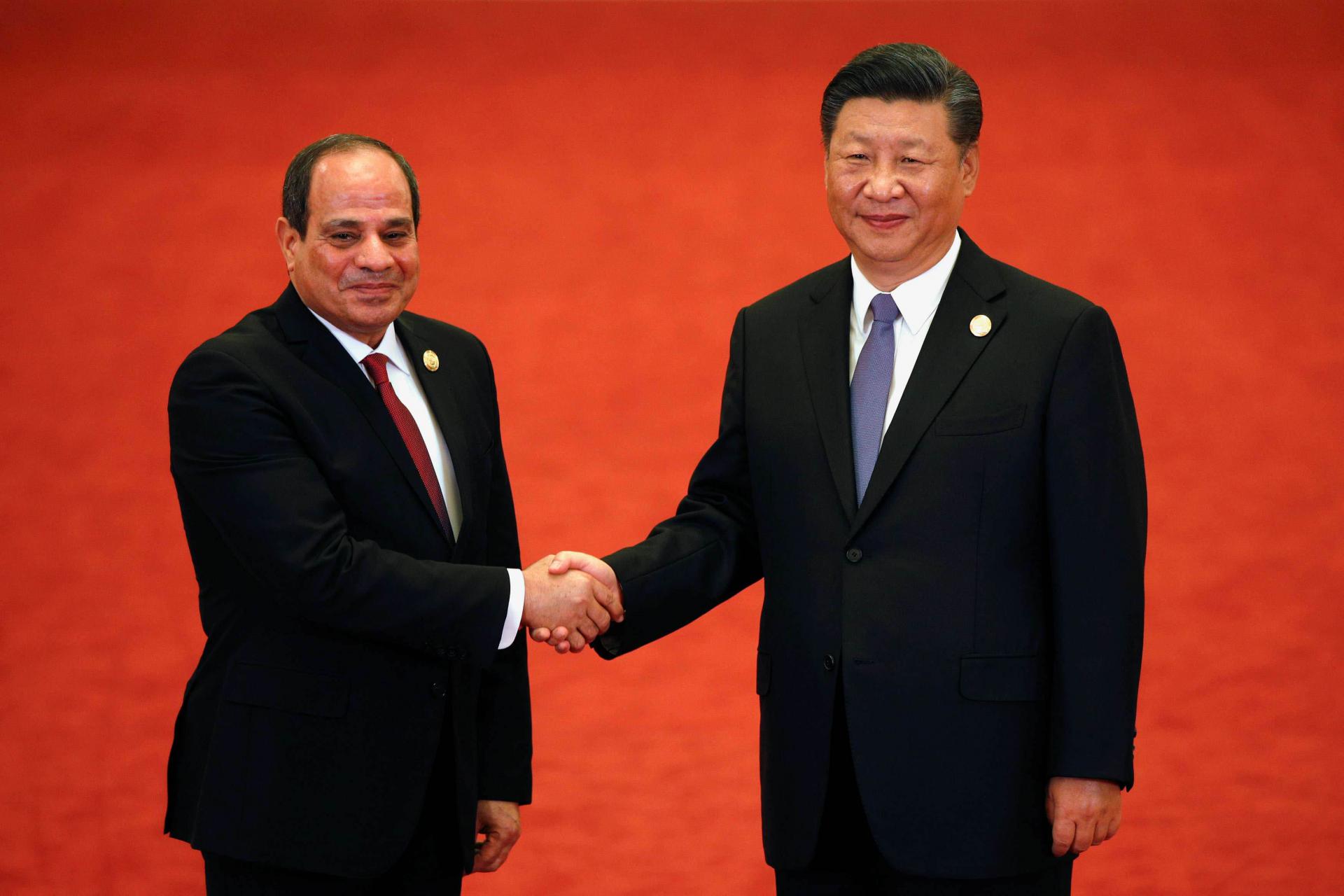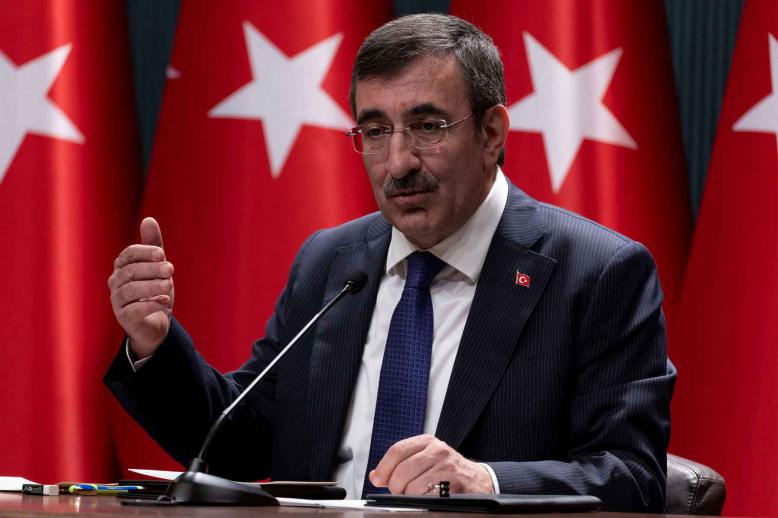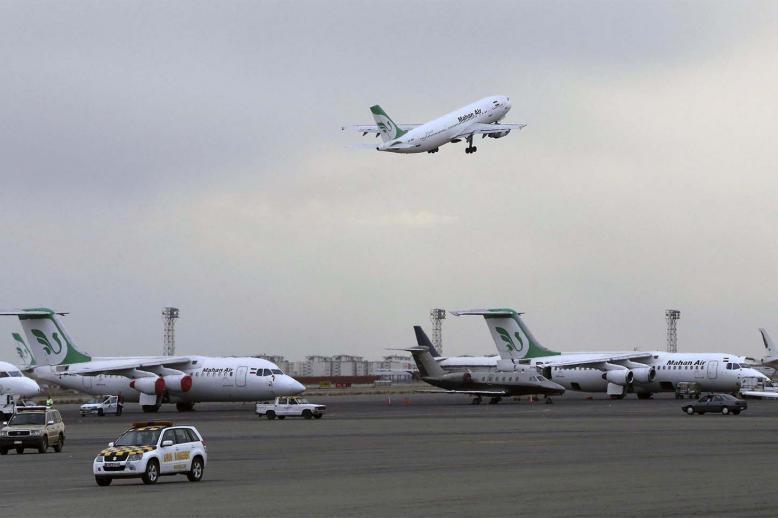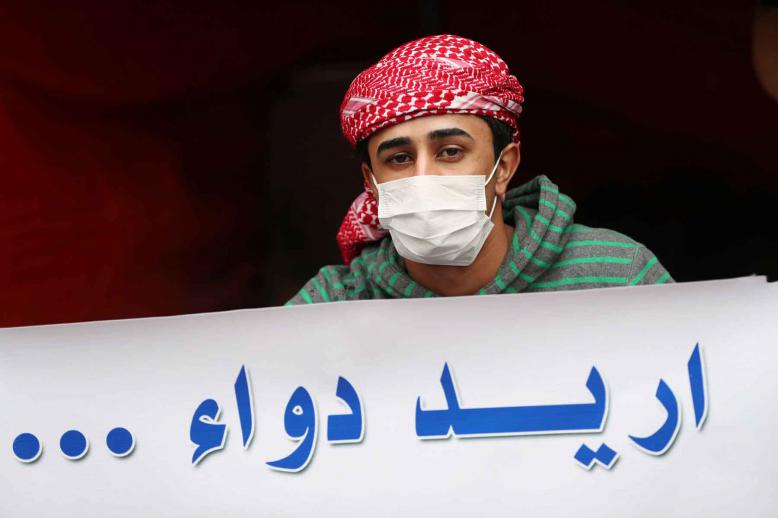In China, Sisi seeks greater economic cooperation and foreign alliances
CAIRO - Egypt’s participation in the 2018 Forum on China-Africa Cooperation seemed to focus on economic ties but political and security considerations were also major factors in Cairo’s attendance, with Egypt seeking to cement ties with both China and Africa.
“Egypt has learned the lesson of dependences on the West the hard way,” said Saad al-Zunt, head of the Strategic Studies Centre, an Egyptian think-tank. “It also lost a lot by neglecting other African nations.”
Egypt experienced the risks of dependence on its alliance with Western countries after its army backed a popular uprising against Islamist President Muhammad Morsi in 2013. Many Western countries froze contacts with Cairo, including the United States, which withheld economic and military aid.
Egypt’s generals have found it difficult to convince Washington to restore military cooperation and US aid.
Egyptian President Abdel Fattah al-Sisi’s visit to China could be understood as part of Egyptian attempts to diversify Cairo’s alliances, analysts said. Sisi has visited China five times in his four-and-a-half years in office. Chinese President Xi Jinping has also visited Cairo.
China has heavily invested in Africa, although not necessarily in Egypt. Sisi is hoping to win more Chinese investment to bolster Cairo’s economic development plans.
“China invests heavily in Africa, especially in infrastructure,” said Mukhtar al-Sherif, an economics professor at Mansura University. “Egypt is badly in need of having its place on China’s African investment map.”
Members of the delegation accompanying Sisi to Beijing signed contracts and deals with Chinese companies worth $18.3 billion on September 3. The contracts included an agreement for the construction of a power plant in the Red Sea city of Hamrawein and others regarding textile and petrochemicals factories in the Suez Canal region.
Egypt wants to ensure a place in the Belt and Road Initiative, a Chinese development strategy that seeks to revive the historic Silk Road for the 21st century.
Addressing leaders of 57 African countries attending the Forum on China-Africa Cooperation, Sisi said Egypt would work to consolidate cooperation between China and Africa.
Sisi said Egypt invested billions of dollars in expanding the Suez Canal to serve the Belt and Road Initiative and contribute to easing international trade.
“Egypt hopes the Suez Canal region will be a logistical and economic centre that contributes effectively to pushing the international maritime movement forward and boosting the freedom of international trade,” Sisi said. “We also hope that this will open the door for more investments.”
Five years ago, Chinese investments in Egypt stood at less than $1 billion. Now, they total more than $10 billion with Egypt hoping that China could become one of its largest investors in the coming few years. Egypt’s exports to China amount to about $1 billion.
Chinese companies are involved in the construction of a new administrative capital on the outskirts of Cairo. Chinese companies helped Egypt establish its major fish farms in the Nile Delta and in the Suez Canal region, an important contribution to reducing fish imports.
“Egypt has a good chance to increase exports to China, especially with the Chinese being open to this idea,” Sherif said. “Increasing exports, not only to China, but also to other countries, is very feasible with Egypt working to modernise its industrial sector.”
In addition to the Suez Canal, Egypt is an important gateway for China to Africa, particularly North Africa.
A closer alliance with Beijing would give Cairo an opportunity to regain its position as a leader in Africa. Before the “Arab spring,” Cairo played strong leadership and economic roles in Africa but that diminished as Egypt focused on resolving domestic political issues.
This is something that significantly harmed Egypt’s foreign relations with several Arab countries, including the Nile River states, complicating negotiations over Nile water share and the Grand Ethiopian Renaissance Dam.
Analysts said closer ties between Cairo and Beijing might help Egypt improve relations with its African neighbours, particularly given close ties between Beijing and many African countries.
“Egypt is actually an important window for China into the continent,” said Nourhan al-Sheikh, a political science professor at Cairo University. “It can become China’s bridge to Africa, which is why the Chinese take it very seriously.”







